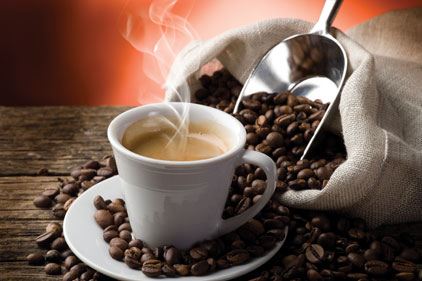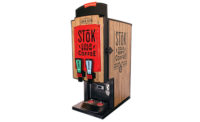Coffee Demand Growing in U.K.

With nearly half (45%) of adults believing coffee has a higher status than tea, (only one in 10 respondents chose tea), coffee is fast becoming an indication of sophistication among the traditionally more tea-savvy U.K. consumer. As a result, it seems that coffee, rather than tea, is now the beverage to savor when socializing, with two thirds of Brits (60%) admitting they would order a cup of coffee over tea when meeting with friends.
Of those that drink coffee, nearly one third (31%) admitted that they could not live without it in their life. With coffee now a much more important part of the daily ritual, coffee lovers are trying to create a quality coffee experience at home.
The in-home coffee moment is, therefore, growing in significance, with over half of respondents (52%) revealing tat they put a lot more effort into creating coffee compared to tea making (35%) as they try to ensure they deliver a consistently high quality coffee experience for friends, family and themselves.
This is complemented by the fact that Brits admit that when purchasing, the right choice of coffee is a more important choice than tea.
Professor Charles Spence, lecturer and professor of Experimental Psychology at the University of Oxford said, “The explosion of coffee culture both at home and on the high-street, mirrors the change in our wine drinking habits from Lambrusco and Chablis through to today's very sophisticated wine market.
As a result, shown through the research, the coffee drinker now expects more from their cup of coffee.
Like with wine, consumers are starting to use their choice and knowledge of coffee to send a signal of their sophistication. With good coffees having around twice as many volatile compounds and aromas as even the finest of wines, there is lots for the coffee drinker to seek out and appreciate in order to utilize this information to elevate themselves amongst their peers .”
As the U.K.'s thirst for coffee knowledge grows, nearly two thirds of the U.K. (60%) agree they would welcome a better understanding of coffee with regards to taste, preparation and serving.
Surprisingly, 18-24 year olds are the age group with a markedly richer understanding of coffee, with one third (33%) able to pair coffee with a course and a quarter (25%) acknowledging knowing more about coffee than wine.
As a result of the nation's love affair with coffee, not only are the U.K. consumers broadening their knowledge of coffee at a younger age, like their cousins in Italy and France, they are starting to be introduced to coffee earlier in our lives.
Three quarters (78%) of those questioned had first started drinking coffee by the age of 15.
In the workplace, high earners in top management roles are also driving this shift of coffee's place in the U.K., as coffee is fast becoming the hot drink to be seen with and an indication of success.
Over three quarters of senior managers (77%) will choose coffee over tea when meeting important business colleagues or clients, with those who deem themselves as ambitious drinking 1.5 times more coffee than other people.
Four fifths (78%) of high earners acknowledge coffee as a necessity for them to feel on the ball and be productive, demonstrating coffee's integral role in the lives of those higher up the career ladder. Strong coffees (espresso and macchiato) are the coffees of choice amongst this high achieving group, with two thirds of those in top management roles (66%) and more than three quarters of ambitious workers (77%) choosing these compared to milky lattes (43%), though the cappuccino tops the list as the nation's favorite coffee.
Over half (55%) of those in top management roles resort to bringing in their own coffee from home because the office coffee is not up to scratch, showing how important quality coffee is to this group of high achieving decision-makers.
From the July 3, 2012, Prepared Foods Daily News
Looking for a reprint of this article?
From high-res PDFs to custom plaques, order your copy today!






